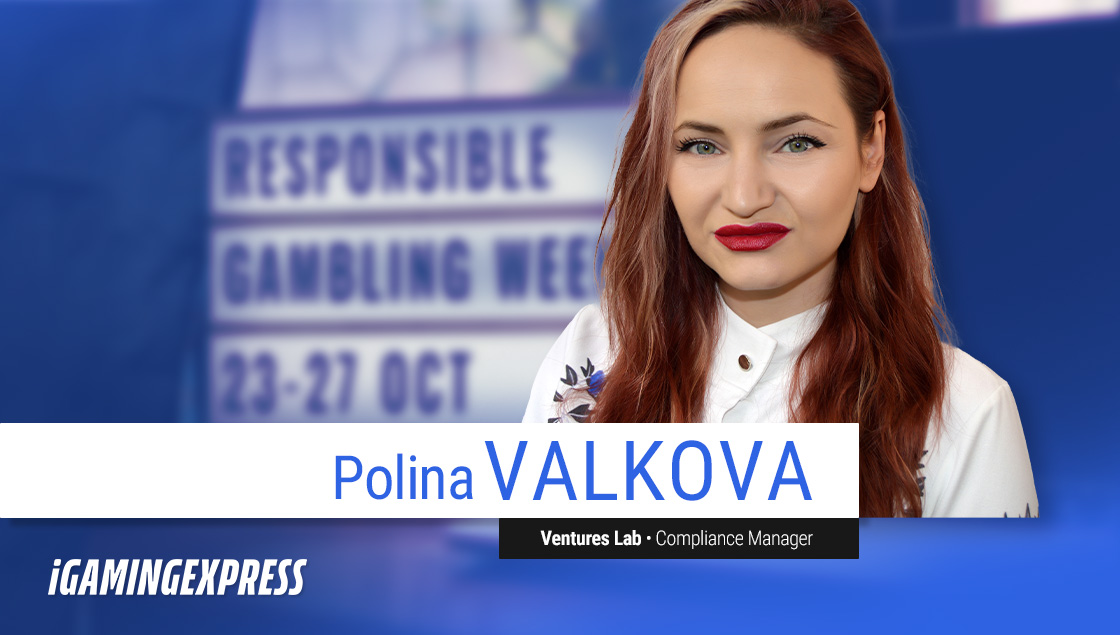“The industry should focus on education and outreach”
As part of Responsible Gaming Week, we talked to Compliance Manager at Ventures Lab, Polina Valkova.

How do you at Ventures Lab approach the principles of responsible gaming?
This is a complex question that relates to the entire responsible gaming framework of the company. We prioritize the well-being of our players by implementing multiple measures to ensure a safe and enjoyable environment.
The website functionalities, such as limits and account closure options, are available to players at all times. These provide the opportunity for players to have full control over their activity. Together with the information provided on the site, they form the first line of support to customers.
An integral part of the framework is staff training. Providing proper and ongoing training to any customer-facing unit is crucial for upholding high standards in managing players’ accounts.
The most elaborate area is undoubtedly the work of our Responsible Gaming team – dedicated professionals who, with the help of technology, spend their time monitoring activities, evaluating risks and providing support to players, spreading awareness of the available resources and tools.
Our approach encompasses not only regulatory compliance, but also a deep understanding of the psychological aspects of gaming, enabling us to identify and support players at risk.
What do you think we should do as an industry to make players aware of the principles of responsible gaming?
To raise awareness about responsible gaming principles, the industry should focus on education and outreach. Collaborative efforts between regulators, operators, and media can be pivotal. Utilizing social media, informative campaigns, and partnerships with people who can share from experience how such campaigns have helped them, can effectively spread knowledge about responsible gaming.
I have read interviews with people who have suffered negative consequences of gambling in an effort to understand first-hand why certain behavior occurs– these materials give another perspective to anyone reading them.
Are there specific goals or performance measures that your company has adopted to monitor the effectiveness of its responsible gaming activities?
Our obligations do not end with limiting a player’s activity or sending them an email about responsible gaming. It is crucial for us to monitor the performance and efficiency of the whole framework. There is no ‘one size fits all’ approach – in the dynamic world of gaming, multiple factors need to be taken into account. We regularly assess the utilization of responsible gaming features by players, track the effectiveness of our interventions, and measure the overall impact on player behaviour. These metrics allow us to refine our strategies continually and ensure that our initiatives are making a positive difference.
You have extensive experience in the industry, as you previously dealt with responsible gaming at oGaming and for nearly five years at SbTech. Do you think that awareness among players and operators regarding the implementation and promotion of responsible gaming principles has increased over recent years?
Yes, absolutely – the industry is at the stage where applying responsible gaming principles is not an exception but an expectation. I firmly believe that both, the players and the companies providing the service, have matured over time and supporting at-risk players is a standard.
Personally, I have observed a notable shift in players’ attitudes; they are now more receptive to conversations about responsible gaming. Operators, too, have become proactive, more and more companies go above and beyond by offering tailored solutions beyond regulatory requirements. This change reflects a collective commitment to players’ well-being.
How do you evaluate an initiative such as ours when it comes to Responsible Gambling Week?
I believe that up to a big extent, the industry and player perception of it have changed due to the multiple responsible gaming initiatives by regulators, operators and media, and that is very positive. These kinds of campaigns spread awareness and help educate the public about potential risks related to gambling and how they can be mitigated.
The topic of gaming is no longer the taboo it used to be – while operators can contact their own customers, it could be challenging to have a greater scale reach; this is where media plays a vital role in popularizing responsible gambling, signs of at-risk or problematic gambling and regulatory requirements.
It is important to keep the public informed of all measures and limits stemming from the regulations – not only to encourage using the tools but also to help players recognize when they might be playing on an unlicensed website, which would not provide them with the expected level of protection.
